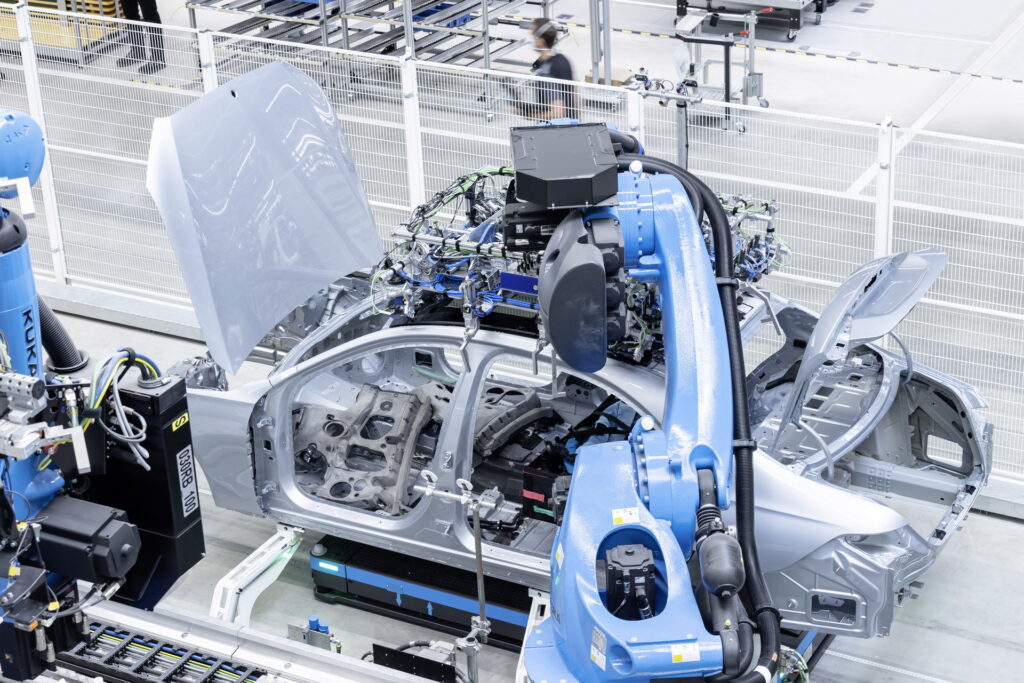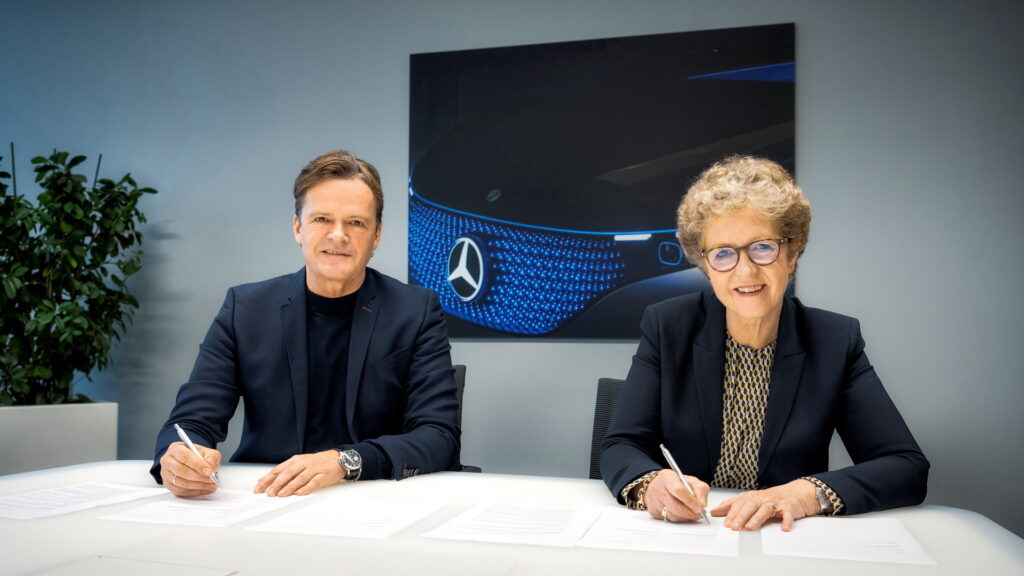Mercedes has signed a letter of intent with Norway’s Hydro for the supply of low carbon aluminum. Thanks to the letter, the automaker could start receiving aluminum with a 70 percent smaller carbon footprint than average and putting it into its vehicles by 2023.
“Aluminum is becoming increasingly important as a lightweight material in electric vehicles,” said Markus Schäfer, Mercedes’ head of development and procurement. “I am very happy that we now join forces with Hydro as a long-standing expert in producing renewable energies to tackle one of the biggest challenges in the automotive industry.”
Mercedes says that it already sources aluminum from Hydro, which goes to its foundry in Stuttgart Mettingen. With this letter of intent, though, the companies plan to enhance their collaboration to first make aluminum whose carbon footprint is 70 percent smaller than average. They will then work to make further reductions and to use more and more recycled materials to make the alloy.
Read: Mercedes Strikes A Deal With Sweden’s SSAB On Carbon-Neutral Steel Supply

“We are intensively working with our partners on finding levers to lower CO₂ emissions in the aluminum supply chain,” said Schäfer. “This is an important signal to accelerate change in the aluminum industry and increase the availability of low carbon aluminum.”
Reuters reports that Mercedes’ all-electric vehicles can contain slightly less than a ton of aluminum, making the material an important contributor to the vehicle’s carbon footprint. According to an article penned by Hydro for climateaction.org, the process of electrolysis used in the manufacture of the alloy is so energy intensive that that power use is the main contributor to the material’s emissions.
Where coal is used to power the process, the production of a ton of primary aluminum can emit as much as 20 tons of CO2-equivalent. Where hydropower is used, those emissions can shrink down to less than four tons of CO2-equivalent. If hydropower is used in concert with recycled materials, the footprint can shrink all the way down to about 0.5 tons CO2-equivalent. Hydro says that its ultimate goal is to produce zero-carbon aluminum.
Mercedes’ “ambition of making their entire fleet of new passenger cars CO₂-neutral by 2039 matches Hydro’s ambition to deliver industrial-scale zero-carbon aluminum by 2030,” said Hilde Merete Aasheim, president and CEO of Hydro. “Partnerships and collaboration in the value chains can accelerate technology developments needed to reduce emissions, and we are excited to have Mercedes joining us on our path to zero carbon aluminum.”
The use of this significantly less carbon-intensive aluminum is part of Mercedes’ goal of becoming fully carbon-neutral by 2039. In addition to this agreement, it has also signed agreements to source cleaner steel, too. These agreements are part of the automaker’s ambition to reduce its carbon footprint by sourcing greener materials, and relying less on carbon offsets.





